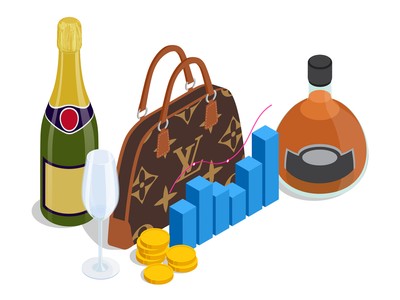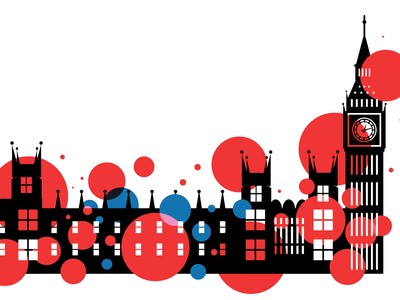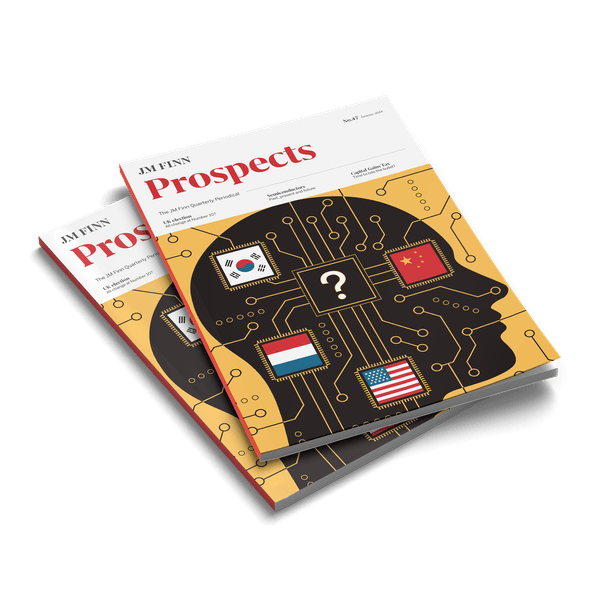Croda International
Equity Market Cap (M) £6,373
Materials
Steve Foots, CEO and David Bishop, Head of Investor Relations
Croda is a specialty chemicals producer which principally develops and supplies high quality functional ingredients into niche market sub-segments. Such ingredients allow customers to make ‘front of packet’ claims such as ‘anti-ageing’ or ‘natural’.
A classic Croda product produced at its Rawcliffe Bridge site is acid-chloride derivatives, used as surfactants for sensitive applications such as baby shampoo or skincare cream CeraVe. They are produced by reacting a fatty acid with an amino acid. Whilst not difficult, the chemistry is fiddly, and customers often require non-standard container sizes. Mass scale commoditised players don’t compete here as a result, making the product high value and high margin for Croda versus traditional alternative surfactants.
Croda was a pandemic winner, but those tailwinds became headwinds in 2023, with destocking and lifesciences weakness still prevalent in 2024. Despite these challenges, Steve retains optimism on the strategic growth opportunities Croda is exposed to across the portfolio. Croda credits its both proactive and reactive in-house research and development (R&D) operations as the key to newly emerging market niche opportunities.
NatWest Group
Equity Market Cap (M) £27,607
Financials
Alexander Holcroft, Project Director and Claire Kane, Director of Investor Relations
The UK government still owns 22.5% of NatWest Group (NWG) and is planning on selling down the stake that it acquired as a result of shoring up The Royal Bank of Scotland during the Great Financial Crisis in 2008.
Claire indicated that NWG was likely to have robust financials going forward. Most UK banks have what they refer to as their “structural hedge”. As base rates rise, banks’ earnings are boosted due to current accounts not paying interest to customers. Banks reduce this volatility by taking out five year hedges (or swaps) which lock in interest rates. For example, NatWest has been receiving an average of 0.8% from their hedge agreements that are rolling off this year. These hedge contracts were put in place when interest rates were much lower, and are being replaced with hedge agreements at higher rates, averaging c.3.1% (given the increase in base rates), boosting earnings going forward.
NWG expect rates to fall and that (a) recent hedges over the past two years should become profitable and that (b) hedges put on during the Covid era at very low interest rates should unwind. Alexander also said that the bank was not seeing stressed borrowers and that it had estimated low impairments (losses on loans) at the most recent results.
We were also told that the bank was more interested in keeping returns on assets (and to shareholders) high and that they were not interested in low return growth opportunities.
NWG’s stance on the possibility of a retail offer by the government in the future is that such an offer would need to be priced at an optimum level that retail investors find attractive, but not so attractive that they would immediately sell their shares.
RadNet
Equity Market Cap (M) $4,349
Health Care
William Elderkin, Head of Investor Relations
RadNet have received some enviable accolades recently: Top 100 in Information Week’s 500 Most Innovative Companies, voted one of the “most wired” imaging companies by Imaging Technology News and reported as the #1 Imaging Center Chain by Radiology Business Journal.
They are the largest provider of fixed-site outpatient diagnostic imaging in the USA, with more than 365 centres delivering MRIs, CT scans, PET scans, X-rays and more. The company has a focus on breast, lung, prostate and brain scans, which are augmented with AI to help their radiologists achieve a precise diagnostic result in a cost-efficient manner. Historically, their lower cost relative to in-hospital scans has driven their strong growth. AI has made a further notable contribution to the mammogram analysis and positioned RadNet at the front of this evolving field.
Importantly, in the USA they have strong relationships with every major healthcare plan in the market, which facilitates cash collection from invoices. David advised that RadNet has favour with insurance payers because RadNet operates scanning centers which are located outside hospitals, and which are much cheaper to operate. The competitive costings incentivise insurance companies to steer patients to RadNet. Looking forward, there appears plenty of long-term runway to continue growing sales. David identified the capture of market share as a significant growth driver given the compelling nature of RadNet’s offering for insurance companies in the USA. The downside is that the company is perhaps overly valued. It is trading on a prospective price/ earnings ratio (P/E) of 84, forecast to fall to 62 by end 2025 but with a 5-year average revenue growth rate of 10.7% p.a. (including a -7% contraction in revenues due to Covid in 2020) and evidence of strong operational leverage, this
is understandable.
CONSUMER DISCRETIONARYCompass Group
LVMH
Persimmon
CONSUMER STAPLESBarry Callebaut
Nestlé
Ocado Group
Unilever
FINANCIALSBeazley
NatWest
HEALTH CAREAstraZeneca
Genus
GSK
INDUSTRIALSExperian
IMI
Spirax Group
MATERIALSCroda International
INFORMATION TECHNOLOGYDarktrace
Esker
UTILITIESNational Grid
SSE
Jack Summers, Research Analyst (Croda International, RadNet)
Sir John Royden, Head of Research (NatWest Group)




